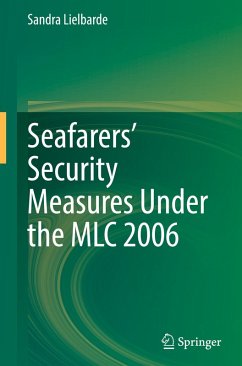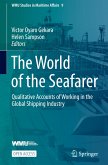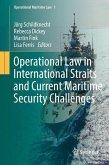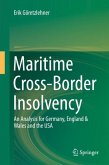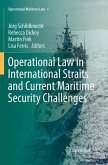The book is intended to be about the Maritime Labour Convention 2006 (MLC 2006), about seafarers' security measures available before MLC 2006 and after its adoption. The following security measures will be addressed in the book: mandatory financial security established by the MLC 2006, flag State responsibility, labour supplying responsibility, port State control, and a ship arrest. The responsibility of the shipowner in respect of the seafarers engaged in work on his ship will be discussed in analysis of nowadays seafarers' recruitment process and a legal structure of shipping companies. Content will include the analysis of international (UNCLOS, ILO and IMO conventions, UNCCRO's, and Vienna Convention on Consular Relations 1963) and national law (Denmark, Estonia, Finland, Germany, Latvia, Norway, The Philippines, and The UK), and relevant legal documents - agreements, guidelines, and court cases.
Under the MLC 2006 the shipowner has an obligation to ensure appropriate working conditions on board a ship, due payment of wages, repatriation of seafarers and to fulfil other obligations in accordance with international and national law and the seafarer's employment agreement. Even nowadays, there are still shipowners who do not take care of the people who work on their ships: the crew onboard is left without food and drinking water, has not been paid for their work and cannot go back home because the shipowner does not pay for their repatriation. Current COVID-19 pandemic turned out to be a serious challenge to the MLC 2006 operation in practice.
The MLC issues and seafarers' employment and social rights continue to be on the agenda of shipping industry. It is expected that on 24 December 2024 the amendments of 2022 to the Code of the MLC 2006 will come into force. The Guidelines for port State and flag State authorities on how to deal with seafarer abandonment cases were adopted on First Meeting of the Joint ILO-IMO Tripartite Working Group to identify and address seafarers' issues and the human element, held on 13-15 December 2022.
The book aims to promote uniformity in implementation of the MLC 2006 by this increasing effectiveness of the MLC 2006. Book will bring a new knowledge in the area of maritime labour law. Accordingly, the author hopes that the book will be an important contribution for promoting understanding of seafarers' rights and shipowners' responsibilities under the MLC. It is intended that the book will be interesting for the professionals, seafarers, and also for students in Law/shipping faculties.
Under the MLC 2006 the shipowner has an obligation to ensure appropriate working conditions on board a ship, due payment of wages, repatriation of seafarers and to fulfil other obligations in accordance with international and national law and the seafarer's employment agreement. Even nowadays, there are still shipowners who do not take care of the people who work on their ships: the crew onboard is left without food and drinking water, has not been paid for their work and cannot go back home because the shipowner does not pay for their repatriation. Current COVID-19 pandemic turned out to be a serious challenge to the MLC 2006 operation in practice.
The MLC issues and seafarers' employment and social rights continue to be on the agenda of shipping industry. It is expected that on 24 December 2024 the amendments of 2022 to the Code of the MLC 2006 will come into force. The Guidelines for port State and flag State authorities on how to deal with seafarer abandonment cases were adopted on First Meeting of the Joint ILO-IMO Tripartite Working Group to identify and address seafarers' issues and the human element, held on 13-15 December 2022.
The book aims to promote uniformity in implementation of the MLC 2006 by this increasing effectiveness of the MLC 2006. Book will bring a new knowledge in the area of maritime labour law. Accordingly, the author hopes that the book will be an important contribution for promoting understanding of seafarers' rights and shipowners' responsibilities under the MLC. It is intended that the book will be interesting for the professionals, seafarers, and also for students in Law/shipping faculties.

